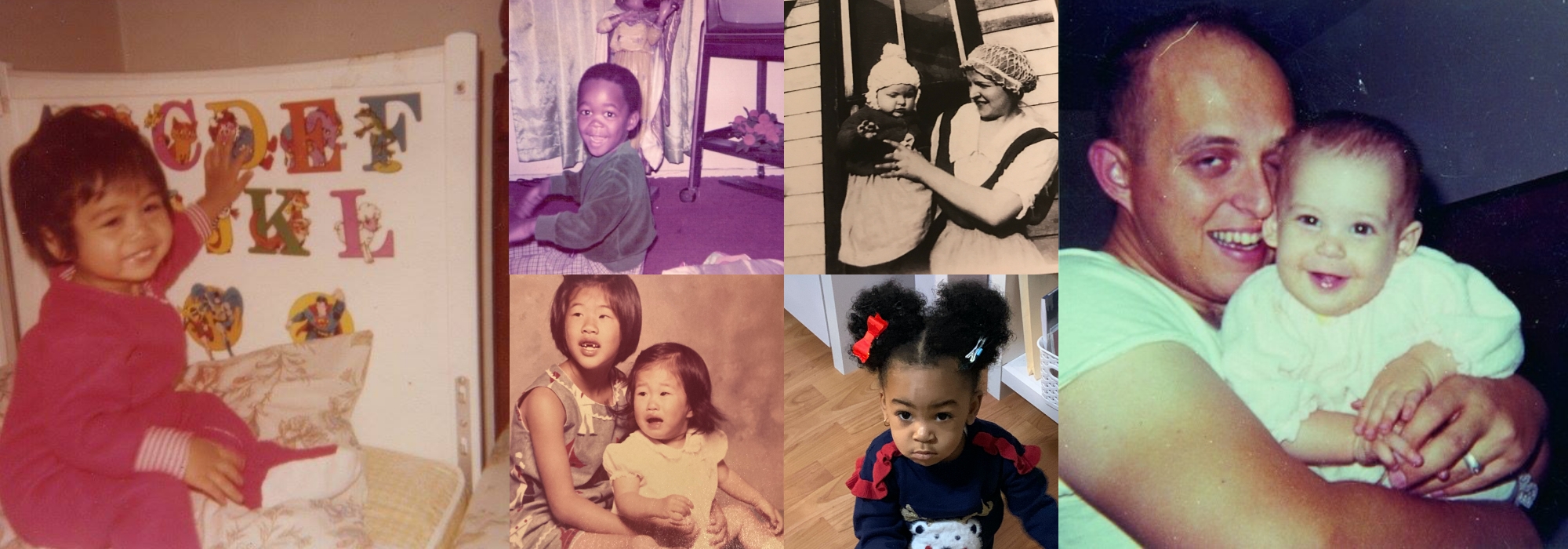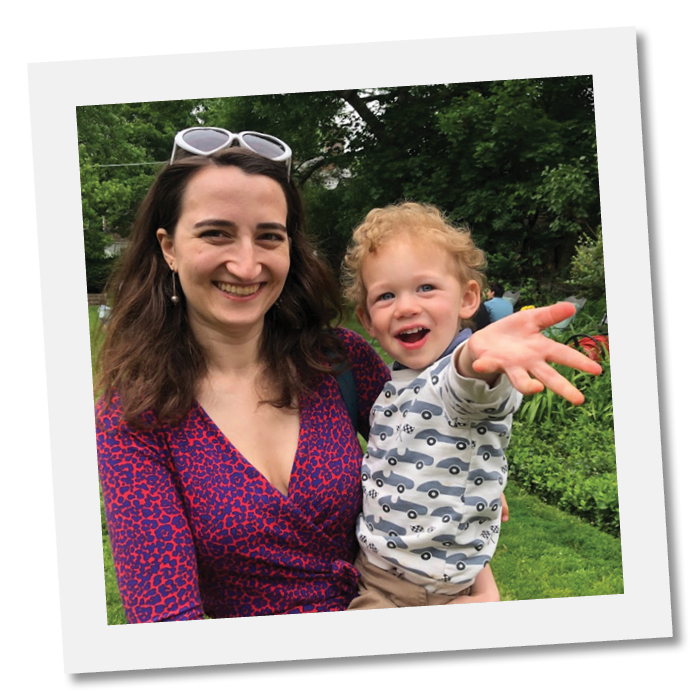
Mary or James, Jennifer or Michael, Olivia or Liam? Babies’ names can sometimes tell you when they were born.
For $50, Sophie Kihm, AB’19, AM’20, will name your baby (satisfaction not guaranteed).
Sophie Kihm, AB’19, AM’20, a self-taught baby name expert, has worked for the website Nameberry since the Autumn Quarter of her first year at UChicago. She is also a clinical therapist at Ashé Consulting and Coaching, where she specializes in prenatal and postpartum therapy.
This interview has been edited and condensed.
How did you become a baby name expert?
I was interested in pregnancy and babies and motherhood, starting at maybe 11 years old. It was a strange interest and wasn’t really encouraged.
I got into names because I was also into fortune-telling at the time. My mom bought me a fortune-telling book about names. I just read it, read it, read it. Then I started doing research, looking at baby name websites, watching videos about baby names.
I didn’t know this could be a career. I thought it was an obscure hobby.
When did we stop giving kids basic names, like John and Mary?
Traditionally boys were often named after their father or grandfathers or uncles. The pool of traditional boys’ names is much smaller. Girls generally were given names deemed attractive or cute or modern.
Around the 1960s, you start to see an increase in new names, especially word names—words that existed but weren’t used as names. Now we’re seeing more of a balance between the sexes in terms of new names.
In general, names are becoming more unique. The percentage of babies given a name that’s included in the top 1,000 is much lower now.
What is the percentage?
About 72 percent of babies are given a name that’s in the top 1,000 names of their birth year. But the top 1,000 names of 2020, for example, represent just over 6 percent of all names recorded by the Social Security Administration. The list only includes names given to five or more babies of a single sex in a given year.
Slightly over 1 percent of all boys born in 2020 were given the top name, Liam. And slightly over 1 percent of girls were given the top name, Olivia.
In 1970, Jennifer was the top girls’ name, at just over 2.5 percent. For boys, the top name was Michael, at 4.48 percent.
Going back to 1940, it’s Mary and James: 4.76 percent of girls were named Mary, and 5.27 percent of boys were named James.
I hear this a lot: “I was always Jennifer W. growing up, and I don’t want my daughter to go through that.” But even if you give your daughter the top name, she’s not going to have that same experience. You’re not dealing with the same numbers.
You offer consulting at Nameberry, from $50 for one name suggestion, up to the nine-month concierge service for $10,000.
It’s a good combination of my naming skills with my training as a therapist.
The one-name option is very popular. The tiebreaker [for $49, a consultant will help you choose between two names] was a surprise hit. With most people you can tell which name they want. They just need to be told it’s OK. That’s a therapy skill.

Are celebrity baby names, like Apple, the name of Gwyneth Paltrow’s daughter, still made fun of?
People still cite Apple as one of the crazy celebrity baby names. It’s out there. She didn’t convince anyone else to use the name Apple.
Some celebrity names catch on. Hilary Duff named her daughter Banks. It’s one of the fastest rising names right now—except for boys. It fits with current styles, whereas Apple wasn’t what people were looking for. They weren’t interested in fruit names at that time. And Apple is a company people were familiar with. There are a lot of reasons not to name your baby Apple.
Is it OK to give a kid a name from another culture, or is that cultural appropriation?
It depends. A French name or an Irish name, not having that heritage, seems OK. For other cultures, it’s more about the individual name.
A good example is Bodhi, a Sanskrit name. Twenty years ago, it would have been weird to name your kid Bodhi if you didn’t have any connection to Buddhism or Hinduism. Now it’s very popular. Once a name gets used enough, it feels somehow appropriate.
Another example is Cohen, a sacred Jewish surname. People are using it as a first name. It’s ranked 282. Last year, 1,178 baby boys were named Cohen.
If you go on any message board about parenting or names, you see people getting into huge fights about it. There are people who are like, my son’s name is Cohen, and I didn’t know it was a sacred Jewish surname. I just like the name and I’m not being disrespectful.
When you meet people, do you immediately know when they were born?
Absolutely. And sometimes you can tell their parents’ political leanings.
Seriously?
It’s unintuitive, but conservative people are more likely to use new names or nicknames as names. Liberals are more likely to use traditional names. Benjamin skews really liberal, for example.
If you’re liberal, you’re more likely to use a longer formal name on the birth certificate, even if you call your children by a nickname. If your name is Josie—just Josie, not Josephine—your parents are probably conservative, based on the data.
I have a son named Benjamin and I feel called out. So when I first emailed you, did you immediately think, this person Carrie is probably X years old?
I thought, you’re probably my parents’ age—Gen X. Probably born in the 1970s.
You have a superpower.
It’s a good party trick. I can also guess people’s siblings’ names, based on the year they were born. I don’t always get it right but when I do, people are like, oh my god.
What do you think of your name? The meaning is nice.
So nice. As a teenager, I was so mean to my parents about it. I went to Evanston High School, and I think there were six girls in my class called Sophie or Sophia.
My birth name is Sophia. Sophie isn’t a nickname for Sophia. It’s a variant, the French form of the Greek. That’s annoying.
I fall firmly in the camp of naming children what I want to call them. One of my favorite girl names—which has been vetoed by the boyfriend, should we have children—is Tilda. Not Matilda, just Tilda.
But it could have been much, much worse. I could have been named Emily. Emily was the top name in 1997. I could have been Emily or Sarah. So popular.
